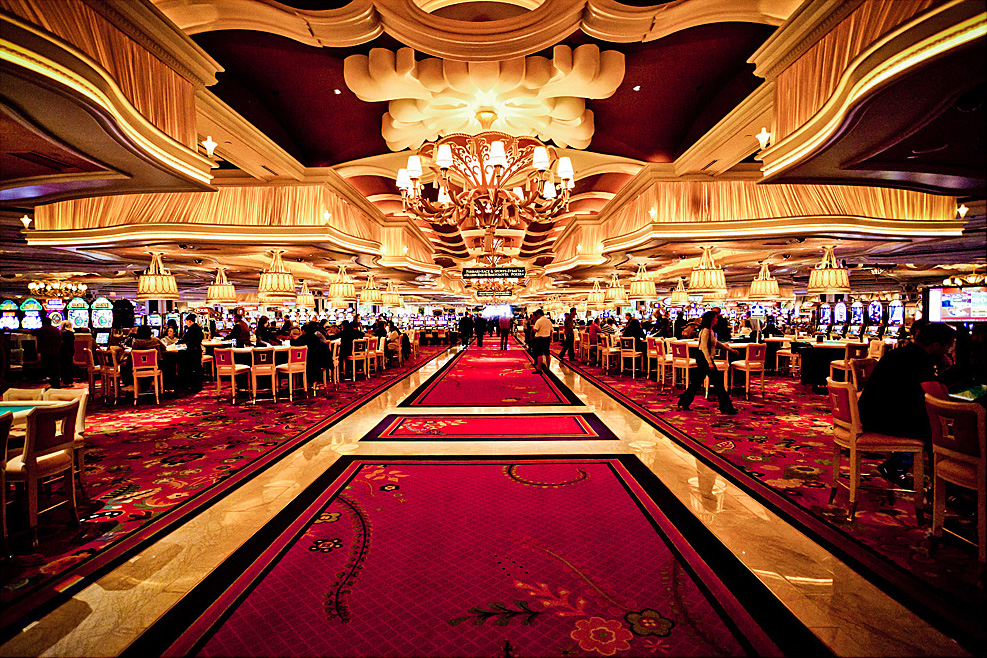
A Societal Impact of Casino Games Worldwide
Casino entertainment have long been a engaging source of amusement, drawing numerous of players from diverse cultures around the globe. From the lively casinos of Vegas to the busy gambling halls of the Chinese gambling capital, these games serve as a bridge that brings together people across a variety of backgrounds. The allure of chance, tactics, and risk entices not only those seeking to gamble for profit but also those in search of a sense of community.
The significance of casino games extends well beyond the gaming floor. They often represent the values and beliefs of the cultures in which they flourish. Games such as seven-card stud, 21, and the spinning wheel have integrated into the mosaic of mainstream culture, influencing various aspects from films to style. As we explore this intriguing intersection of luck and society, we can comprehend better how these games shape and are shaped by the surrounding world.

Historical Development of Gaming Activities
The beginnings of gaming games can be followed back to old civilizations, where gambling in various forms was extensively performed. In Ancient China, around 2300 BC, a variant of gambling known as Keno was well-known, while in old the Roman Empire, soldiers would frequently gamble on the outcomes of their contests. The notion of using randomness for amusement and profit evolved over the centuries, leading to the establishment of more structured games. By the final Middle Ages, gambling houses began to surface in Europe, especially in the Italian peninsula, which presented early forms of popular games still practiced today.
As betting increased popularity in European regions, the 17th and 18th centuries saw the emergence of casinos as specialized locations for betting. The initial official gaming venue, the Ridotto, was established in Venice in the year 1638, providing games like the game of Baccarat and Faro. This period marked a crucial pivoting point, as casinos commenced to attract not just the high society but also the burgeoning middle-tier society. The sophistication of activities evolved, leading to the development of new rules and variations that enhanced the experience of players.
In the 19th century, the industrial revolution and shifts in social conventions also altered the environment of casino activities. The introduction of roulette and new slot machines attracted a broader crowd, and gaming houses became seen as legitimate recreation. This era witnessed the international spread of gaming, as gambling houses extended from European nations to the Americas, culminating in the establishment of the legendary Las Vegas Strip in the 1900s. The evolution of gaming games has progressed into the present day, including technology and online services, making them available to a universal market.
# Cultural Importance across Diverse Societies
Casino games have deep-rooted cultural value across a multitude of cultures around the world. In Las Vegas, the very essence of the urban landscape is woven around gambling establishments, where gaming is not just a pastime but a central aspect of entertainment and community life. The dazzling lights and lively atmosphere attract millions, showcasing how games of chance can shape local economies and local cultures. This surrounding transforms the notion of relaxation into an engaging experience that shapes style, melodies, and even cinema.
In contrast, some cultures approach wagering with more caution, viewing it through the lens of morality and customs. rajacabe88 A case in point, in various Eastern communities, games like Mahjongg and Pai Gow are full of history and have significant social implications. These games are often played during gatherings and festivities, fostering community bonds and solidifying family ties. The act of playing these games goes beyond mere entertainment, reflecting values such as deference to seniors and the significance of collective enjoyment.
At the same time, in Western countries such as the principality of Monaco and the Italian Peninsula, games of chance serve as symbols of wealth and elegance. The stylish atmosphere of these establishments attracts both tourists and native inhabitants, reinforcing a sense of status and exclusivity. The art of poker and the strategic features of games like banker’s game are celebrated, molding interpersonal interactions and establishing an appeal that fascinates a diverse audience. This highlights how gambling can concurrently reflect and shape cultural attitudes towards danger, benefit, and social interaction.
Economic Impact and Travel Industry
Casino games play a important role in the financial context of many regions, particularly those that depend significantly on visitor traffic. The revenue generated from gambling establishments fuels local economies, creating employment opportunities not only within the casinos themselves but also in related sectors such as hotel management, restaurant services, and recreation. This influx of tourists, drawn by the attraction of games and the overall casino experience, stimulates expenditure across multiple local enterprises, contributing to the economic health of the area.
The existence of casinos often leads to the construction of infrastructure, including lodging, public transit, and leisure amenities. These improvements are essential in improving the overall tourist experience, making locations more appealing to visitors. Additionally, many casinos contribute in local communities through support of events and charitable initiatives, further embedding themselves into the social fabric of the locality. Such contribution not only supports economic growth but also fosters a positive reputation of the gambling sector.
Moreover, the global popularity of casino games drives tourism competition, with regions vying to attract gamblers from across the globe. Iconic locations like Las Vegas and Macau have become identifiable with gambling culture, drawing millions annually. This competitive edge encourages creativity and variety within the gaming industry, influencing developments in leisure and accommodation that extend beyond their borders. The ripple effects of this visitor influx extend wide, impacting local economies and cultural exchanges on a worldwide scale.